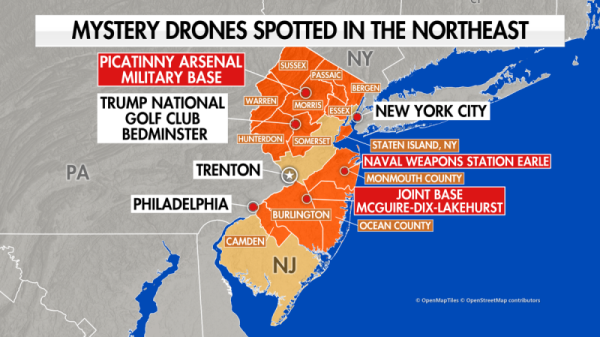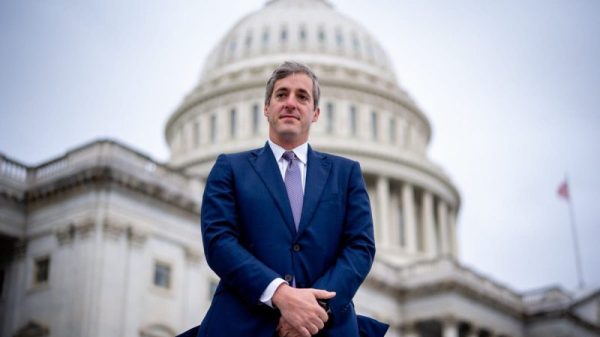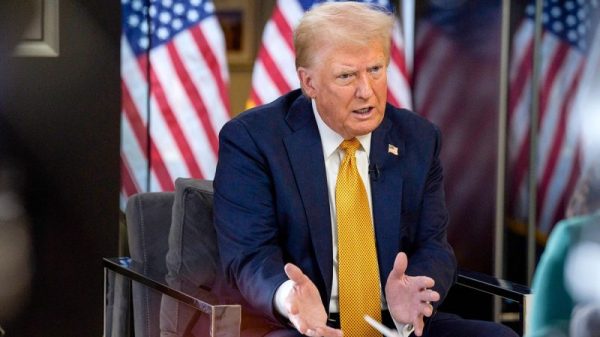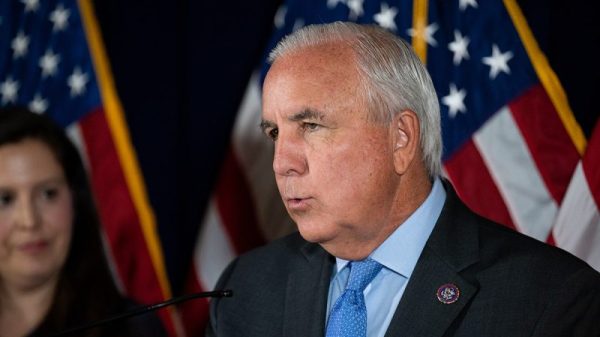
After a number of key legislative priorities related to cracking down on China failed to make it into the yearly defense bill, Republicans are working on ways to get them signed into law before the end of the year.
On Wednesday, the House will vote on the sprawling 2025 National Defense Authorization Act (NDAA), which sets policy plans for the Pentagon’s $895 billion budget. That legislation was negotiated between Republican and Democratic leadership in both the House and Senate and typically enjoys wide bipartisan support.
And while the package will not advance legislation aimed at cracking down on U.S. dollars flowing toward Chinese Communist Party-affiliated companies, Republicans will push to include those provisions, which are a key priority for House Speaker Mike Johnson, R-La., in other must-pass legislation.
With a government funding deadline in 10 days, those measures could be included in a continuing resolution (CR), which would punt the funding deadline down the road and keep budgets at FY 2024 levels, multiple sources familiar with negotiations confirmed to Fox News Digital.
‘During the course of negotiations on the annual defense bill, significant progress was made towards achieving consensus on provisions to counter China and strengthen our economic security. That momentum remains and more time is needed to get that important work done with the goal of passage before the end of the year,’ Johnson said in a statement.
One provision that was left out would prevent the U.S. from investing in the development of military technologies, a way to codify a rule put forward by President Biden’s Treasury Department.
The rule prohibits U.S. financing of some China-based ventures and requires Americans to notify the government of their involvement in others.
It restricts and monitors U.S. investments in artificial intelligence, computer chips and quantum computing, all of which have a dual use in the defense and commercial sectors.
The rule seeks to limit the access ‘countries of concern,’ like China, including Hong Kong and Macao, have to U.S. dollars to fund the development of high-level technologies like next-generation missile systems and fighter jets they could then utilize for their own military. It’s set to take effect Jan. 2.
House Minority Leader Hakeem Jeffries, D-N.Y., demanded that outbound investments piece not be included in the negotiated NDAA, three sources familiar with the negotiations confirmed.
Some mused that Democrats put up a fight over China provisions because they were frustrated with another provision Republicans insisted on including: a ban on military health care providers from paying for transgender operations like sex changes for dependent minors if it would leave them sterile.
Politico was first to report about the back-and-forth.
Rep. Adam Smith, D-Wash., the ranking member of the House Armed Services Committee, said he would not vote for the legislation – which includes big pay raises for junior troops – over the transgender provision.
And in a relief for Chinese biotechnology companies, the Biosecure Act, which prohibits the U.S. government from contracting with companies that do business with a ‘biotechnology company of concern,’ has been left out of the NDAA.
Three sources familiar with the negotiations told Fox News Digital that Reps. Jim McGovern, D-Mass., and Jamie Raskin, D-Md., stood in the way of the legislation’s inclusion in the negotiated defense bill.
Raskin could not be reached for comment on his opposition.
McGovern opposed the bill when it came up for a stand-alone vote in the House.
‘The Biosecure Act, is a weak bill, and as written, it could actually make the problem even worse,’ he said in a statement.
‘First, naming specific companies will create a ‘whack-a-mole’ situation where entities can change their name and reincorporate to evade sanctions,’ he went on. ‘Second, it’s totally wrong to call out specific companies without any formal investigation or interagency process – that might be how they do things in the [People’s Republic of China], but this is the United States of America where we ought to have a thorough, independent investigation.’
In September, Fox News Digital reported that lawmakers were aware of a machine operated by a Chinese military company in use at the nation’s most secretive government laboratories.
The machine operated by Chinese biotech company BGI is in use at the Los Alamos lab in New Mexico.
BGI, among other companies, is included in a ban in the Biosecure Act.
Also among them is WuXi Biologics, a company that planned to build a $300 million biomedical plant in McGovern’s district.
Attaching the China outbound investment provision and the Biosecure Act to must-pass legislation would ensure it doesn’t die in the Democratic-led Senate the way House GOP-led bills often do.





























